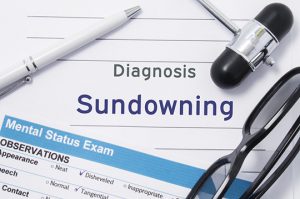What do you need to know when preparing for your NCLEX-PN? How can you pass the first time? What’s the best way to study? Is there a study guide? Are there any special tips?
You’re reading one of our “Nursing Career Guide” articles. Need to practice for your upcoming exam? Have a look at our free NCLEX practice questions -- no registration required! ✨
Relax! We have a few answers to these questions. Let’s get you started on the last step to your nursing license and new career!
Is it hard to pass the NCLEX-PN?
Let’s start with the very good news: The 2020 first-time pass rate for LPN/LVN candidates who are educated in the United States is 85.32%. In 2019, it was 85.63% That means that that of the 48,234 candidates who sat for NCLEX-PN, 41,303 passed.
How difficult is the NCLEX-PN?
The NCLEX-PN is challenging—it’s supposed to be. The purpose is to determine if you’re capable of providing safe and effective care for clients who are trusting you with their lives. Just as you expect to receive excellent medical care, passing the NCLEX-PN is proof that you are able to give the same level of care.
If you attended an accredited school for your LPN/LVN education, passed your classes, and did well in your clinical rotations, you already have a solid foundation. Your knowledge and experience will provide most of what you need to understand the content of NCLEX.
You will still need to become familiar with how to read and understand NCLEX questions, and then apply everything you’ve learned to answer them correctly. This is where your own discipline and effort are important: It’s going to be up to you to study and prepare for your examination. Fortunately, there are plenty of resources, including Nurse Plus.
Who is responsible for writing the NCLEX-PN?
The National Council of State Boards of Nursing (NCSBN) is the organization that designs the NCLEX-PN and NCLEX-RN. The exam questions (called “test items”) are based on two factors:
- An analysis of the activities that an LPN/LVN perform frequently and that are identified as also important for entry-level nurses to know and understand, to ensure client safety.
- The results of a knowledge, skills and abilities (KSA) survey. The primary purpose of the KSA study is to identify the knowledge needed by a newly-licensed LPN/LVN in order to provide safe and effective care.
As a future licensed nurse, you’re expected to do more than just memorize facts for your NCLEX-PN. While you will be asked about details such as vital signs and laboratory values, the questions are likely to apply them to a client’s diagnosis or situation. More good news: You’ve probably already been doing this throughout your nursing education!
NCSBN uses Bloom’s Taxonomy to write NCLEX test items: “Since the practice of nursing requires application of knowledge, skills and abilities, the majority of items are written at the application or higher levels of cognitive ability, which requires more complex thought processing.” (Read this Nurse Plus article to learn more about Bloom’s taxonomy and to see examples of questions you may encounter on your NCLEX.)
What’s the best place to start studying?
We recommend that you begin by downloading the NCSBN Test Plan for the NCLEX-PN. The test plan is effective April 1, 2020 through March 31, 2023. It is the road map for your studies.
The Test Plan outlines each of the four Client Need categories, tells how much content from each category (or subcategory) will be on the examination, and lists both the related LPN/LVN activities and content. There is no way to know the exact questions you will be asked, but the Test Plan will help you focus on possible subject matter.
Here are the Client Need categories and subcategories for the NCLEX-PN:
| Client Needs: Categories | Percentage of Test Items |
| Safe and Effective Care Environment | |
|---|---|
|
|
| Health Promotion and Maintenance | 6-12% |
| Psychosocial Integrity | 9-15% |
| Physiological Integrity | |
|
|
Can you give me an example of what to do with the Test Plan?
Absolutely! Let’s look at Health Promotion and Maintenance. It’s the smallest of the Client Needs, but will still be about 10% of your NCLEX, so it’s important to answer those test items correctly.
- NCSBN defines Health Promotion and Maintenance: “The LPN/VN provides nursing care for clients that incorporate knowledge of expected stages of growth and development, and prevention and/or early detection of health problems.” Now we know that this section is about caring for clients throughout their lifespan. We also know that it involves helping clients prevent illness or at least detect problems as soon as possible.
- Next, there is the list of activities that an LPN/LVN should be able to perform. Go down this list and see if there is anything that you’re not familiar with or that you know you need to study more:
- Provide care that meets the needs of the newborn less than 1 month old through the infant or toddler client through 2 years
- Provide care that meets the needs of the preschool, school age and adolescent client ages 3 through 17 years
- Provide care that meets the needs of the adult client ages 18 through 64 years
- Provide care that meets the needs of the adult client ages 65 and over
- Assist with fetal heart monitoring for the antepartum client
- Assist with monitoring a client in labor
- Monitor recovery of stable postpartum client
- Collect data for health history (e.g., client medical history, family medical history)
- Collect baseline physical data (e.g., skin integrity, height and weight)
- Identify barriers to communication
- Identify barriers to learning
- Compare client to developmental milestones
- Assist client with expected life transition (e.g., attachment to newborn, parenting, retirement)
- Identify clients in need of immunizations (required and voluntary)
- Participate in health screening or health promotion programs
- Provide information for prevention of high-risk behaviors (e.g., substance abuse, sexual practices, smoking cessation)
- Identify community resources for clients
- Finally, there are several pages of content that you may find on your NCLEX. These aren’t the actual test items, but they are indications of what they may be about. Here is a sample of what you’ll find:
Data Collection Techniques
- Collect data for health history (e.g., client medical history, family medical history)
- Collect baseline physical data (e.g., skin integrity, height and weight)
- Prepare client for physical examination (e.g., reinforce explanation of procedure, provide privacy and comfort)
- Document findings according to agency/facility policies/procedures
- Report client physical examination results to health care provider
With this information from every Client Need category and subcategory, you now have both a Study Guide and a checklist to make your own personal Study Plan.
How can Nurse Plus help me?
Glad you asked! While we can’t do the actual studying for you, we can help you get familiar with NCLEX questions, the test format, and ways to reinforce your learning:
- Practice tests: You can take them as often as you like. Each time, the questions and the options are randomly shuffled, so you aren’t repeating the tests in the same order. Many of the test items include the current terminology that’s used on NCLEX, so you’ll get accustomed to how the wording will look on the exam.
- Instant feedback: If you answer a test item correctly, you automatically advance to the next one. If you choose an incorrect option, we provide an explanation so you can get the information you need. If you’re not certain about which option to select, we also can give you a hint—sometimes, that’s all you need.
- SATA Questions: Select-All-That-Apply (SATA) questions are among the most difficult you’ll encounter on NCLEX. We had requests to include them, and we have! There are six SATA practice tests, and more to come. Take them again and again, so you can understand the reasoning behind the questions.
- Flashcards: One of the oldest and best proven ways to learn is by using flashcards. Instead of the math tables from your elementary education, we have hundreds of medical terms, facts, and concepts for you to review. Go through them and keep track of which ones require your attention.
- NCLEX Simulator: Using the same Computer Adaptive Testing (CAT) system you’ll have on your test day, take this “final exam” at least three times. Each time, there will be new questions; just like the real NCLEX, you will receive a minimum of 85 questions, all the way up to the maximum of 205 questions. And, just like the real NCLEX, the exam is timed. This is one of the best ways to prepare for your Test Day.
- Adult Learning Principles: Adults learn differently from children and we have applied scientific standards to create our responsive, interactive website that will help you reach your goal of becoming a licensed professional nurse. We know you’re motivated, but busy, so we make it easy for you to navigate the website and find what you want.
I want to study more!
A: Of course! In fact, we hope you do. You already know that there is a lot of overlap in the RN and LPN/LVN education programs. Both have courses in common, including infection, safety, client care, and psychosocial issues. Nurse Plus allows you to access ALL the practice tests, so you’re free to take RN practice tests, too.
The big differences are that RN programs have more focus on management/supervision and pharmacological therapies. Because RNs have more responsibilities, they receive more training in Analysis and Evaluation concepts. They also learn about parenteral and high-risk medications.
Here’s a suggestion: Choose one of the Client Needs tabs in the NCLEX-RN section. There’s a description of what is covered in each practice test. Give it a try! If you come across a question that is clearly meant for an RN, such as calculating an IV drip rate, simply take a guess. That’s how you can advance to the next question. You won’t get 100% on the practice test, but you will get lots of good practice on content that can be included on your NCLEX.
Any last-minute advice?
We can’t stress this enough: the more you study and practice, the more comfortable and confident you’ll be on the day you sit for your NCLEX-PN.
Look for other ways to review, too. If you’re a visual learner, go to YouTube and find video lectures or demonstrations about what you still need to know. If you like to read and take notes, find a print book filled with questions; the major textbook publishers (Lippincott, Mosby, Saunders, etc.) each sell books filled with questions and answers. If you do best in a group, organize some classmates and get together regularly. Online meetings are easy and convenient to do. No matter what your style, stick to a schedule!
 By
By 



